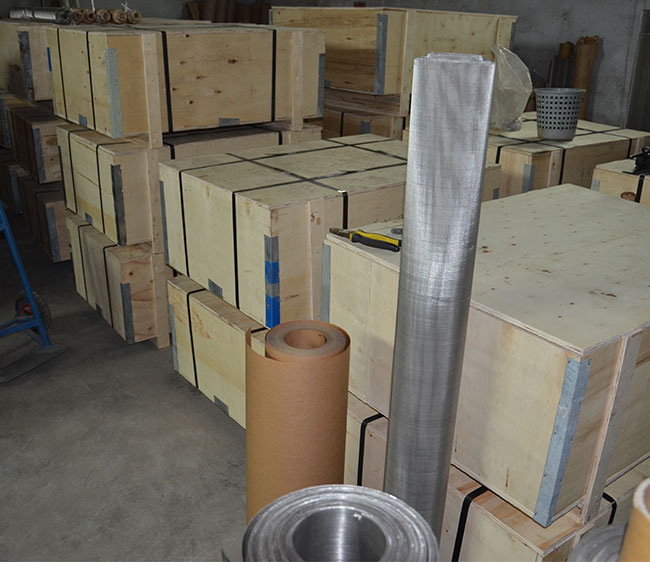Sep . 28, 2024 20:27 Back to list
Innovative Designs with China Architectural Mesh for Modern Structures and Aesthetics
The Versatility and Elegance of China Architectural Mesh
In the rapidly evolving realm of architectural design, materials play an indispensable role in shaping not only the aesthetics of buildings but also their functionality. One such material that has gained prominence in recent years is architectural mesh—particularly the variety produced in China. Renowned for its versatility, durability, and innovative design, China architectural mesh has become a staple in modern architecture, transforming structures in urban landscapes across the globe.
What is Architectural Mesh?
Architectural mesh is essentially a type of woven or perforated material that is used in building facades, partitions, ceilings, and other architectural elements. It is typically made from stainless steel, aluminum, or other metals, offering strength and flexibility. The design possibilities with architectural mesh are vast, enabling architects and designers to create unique patterns and textures that can significantly enhance the aesthetic appeal of a structure.
The Rise of China Architectural Mesh
China has emerged as a global leader in the production of architectural mesh, thanks to its advanced manufacturing techniques and the availability of high-quality materials. Chinese manufacturers have adopted cutting-edge technology to produce mesh that meets international standards while also being cost-effective. This has made it increasingly popular among architects and builders seeking to incorporate innovative designs within budget constraints.
Applications in Modern Architecture
The applications of China architectural mesh are incredibly diverse
. It is often used in residential, commercial, and institutional projects. Some notable uses include1. Building Facades Architectural mesh can create striking facades that not only serve an aesthetic purpose but also offer functional benefits such as sun shading and ventilation. The perforations in the mesh allow natural light to filter through while reducing heat gain, making buildings more energy efficient.
china architectural mesh

2. Interior Design Inside buildings, architectural mesh can be used as decorative screens or dividers, providing privacy without entirely closing off spaces. Its translucency allows for the creation of elegant, open designs while still maintaining a sense of separation.
3. Safety and Security In addition to its aesthetic and functional attributes, architectural mesh serves an important role in safety. It can be used for balustrades, staircases, and railings, providing a solid barrier without compromising visibility or light.
4. Green Buildings As the world moves towards more sustainable construction practices, architectural mesh has found its place in green building initiatives. Its lightweight nature contributes to reduced structural loads, and when used in conjunction with greenery, it can create beautiful living walls that improve air quality and biodiversity.
Aesthetic Qualities
One of the most appealing characteristics of China architectural mesh is its ability to transform a mundane building into a work of art. The interplay of light and shadow through the mesh creates dynamic visual effects that change throughout the day, giving structures a unique character. The range of colors and finishes available enhances this effect, allowing for customization that meets specific design visions.
Challenges and Considerations
While the benefits of using architectural mesh are numerous, designers must also consider potential challenges. These include the selection of appropriate mesh sizes and materials according to the specific climatic conditions and functional needs of the building. Additionally, it's important to ensure that the installation is carried out with precision to maintain both the structural integrity and aesthetic appeal.
Conclusion
In conclusion, China architectural mesh represents a remarkable convergence of form and function in modern architectural design. Its versatility, durability, and aesthetic appeal make it an ideal choice for architects and builders looking to innovate and inspire. As urban environments continue to evolve, the role of architectural mesh will undoubtedly expand, enriching our cities with designs that are both beautiful and sustainable. By embracing this material, we are not just shaping our buildings but also crafting the future of our urban landscapes, one mesh at a time.
share
-
Safety Mesh for Windows – Durable Mosquito and Insect Protection Solutions
NewsJul.08,2025
-
12x24x1 Air Filter – High Efficiency Replacement for Improved Air Quality
NewsJul.08,2025
-
Premium Stainless Steel Mosquito Mesh - Durable, Rust-Resistant Protection for Windows & Doors
NewsJul.08,2025
-
Premium Stainless Steel Garden Mesh for Lasting Durability Best & High Quality Mesh Solutions
NewsJul.07,2025
-
Gold and White Blackout Curtains – Elegant Light Blocking & Insulation for Home
NewsJul.07,2025
-
Premium Spa Filter Cartridge for Clean Water Spa Pool Filters Cartridges for Jacuzzi Durable, high-efficiency spa filter cartridge for spas and jacuzzis. Improve water quality—order your pool filter cartridge now!
NewsJul.07,2025

